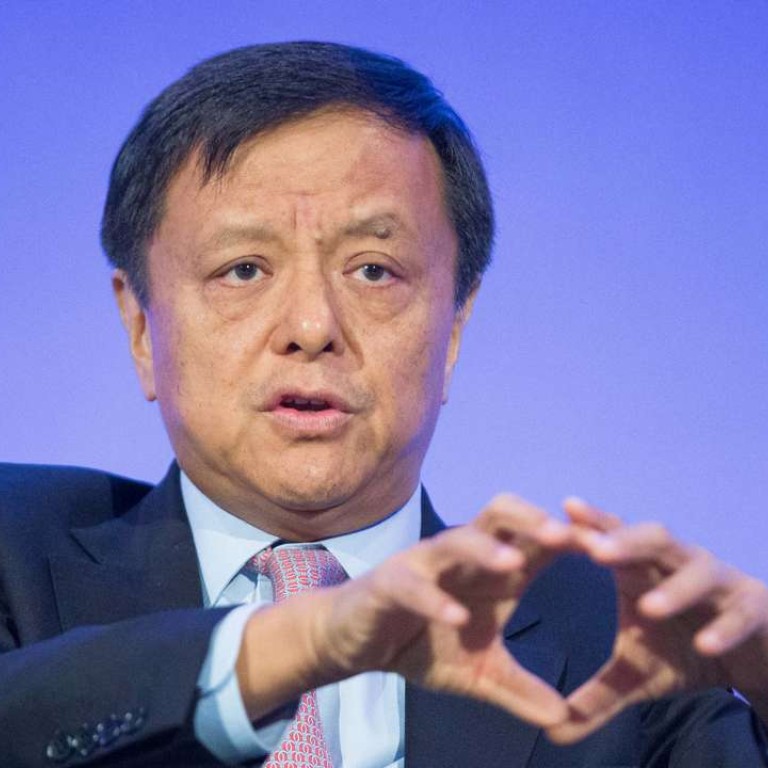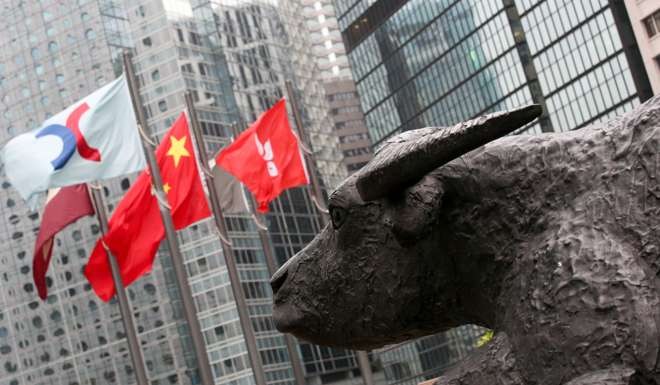
Compromise is likely outcome of Hong Kong listing reform as opposing camps stand firm
Controversial stock exchange listing reforms which sparked a turf war between Hong Kong regulators, listed companies and brokers saw the consultation period end on Friday but there is no sign of a cease fire between supporters and opponents.
The extreme views expressed among the opposing camps mean it is unlikely that all four of the major measures recommended in the reform proposals will go ahead.
Lawmakers and brokers believe the likely outcome will be a compromise with the Securities & Futures Commission taking more of a front row seat in setting listing policies but not approving each and every individual company seeking a listing.
“The reform has attracted so many complaints that it’s hard for the SFC to proceed with the entire reform package. But it’s also unlikely to see the SFC scrap the reform although some opponents call for it to abandon the reform,” said Christopher Cheung Wah-fung, lawmaker for the financial services sector. “It’s likely the SFC will make some substantial changes to the proposals and go ahead with a watered-down version of the reform.”
Jointly launched by the Securities & Futures Commission and the Hong Kong Exchanges & Clearings in mid-June, the consultation was expected to close on September 19 but was extended for two months due to conflicting views on the proposals.
The reforms would allow the SFC to be more involved in the early stages of listing matters, such as setting new policies and approving new listings, which the commission believed would be more efficient and enhance market quality. Opponents of the plan fear that it would lead to over-regulation and could kill off the market for initial public offerings.
The reforms proposed creating two committees – a listing policy committee and a listing regulatory committee – on top of the existing listing committee, with equal representation by the SFC and the HKEX, to approve complicated new listings and set listing policies.

The proposed reforms would also cut the power of the exchange operator because HKEX chief executive Charles Li Xiaojia would step down from the listing committee, and the Listing Policy Committee would carry out appraisal of the staff on the listing division.
Over the past five months, opposition to the reforms came mainly from stockbrokers, listed companies and the business chamber, which called for scrapping the reform completely.
“We don’t accept making some changes to the reforms as it is not acceptable. The SFC should abandon the reform completely,” said Mike Wong Ming-wai, chief executive of the Chamber of Listed Companies of Hong Kong.
The chamber’s vice-chairman Lo Ka-shui publicly slammed the proposals as giving too much power to the SFC and warned that they “may kill off the listing market”.
The Listing Committee earlier this week also expressed its opposition but its two deputy chairmen, John Ho and Stephen Brown, showed support in a submission in their personal capacity – a prime example of how divided views are over the reform.
However, the SFC has shown no sign retreating as it has support from government officials including Secretary for Financial Services and the Treasury Chan Ka-keung, former SFC chairman Robert Owen, as well as bodies like the Hong Kong Institute of Certified Public Accountants and Hong Kong Investment Funds Association (HKIFA).
HKIFA chief executive Sally Wong said the association supported all of the proposed reforms as they sought to address market quality issues, including poorly performing IPOs and high volatility in the Growth Enterprise Market.
We don’t accept making some changes to the reforms as it is not acceptable. The SFC should abandon the reform completely
“HKIFA believes that while the consultation paper is the right step forward, it does not go far enough. Ideally, in the best interests of investors and to provide clarity and certainty about accountability, the task of vetting IPOs should be vested with the SFC. This will ensure that investor interests will prevail over commercial or other considerations,” Wong said.
Between the extremes of supporters and opponents there are many commentors calling for compromise, saying they would support the reform but adding that some measures need to be dropped or changed.
The proposal that has gained the most support is the one that would remove HKEX chief executive Li from the listing committee to avoid any conflict of interest, and this is likely to happen.
The proposal least likely to go ahead is the one where the Listing Policy Committee would replace the HKEX in performing performance appraisals on HKEX listing division staff, a move opposed by the Financial Services Development Council and others.
“It is ridiculous to let a third party do appraisals of HKEX listing division staff. How can someone outside the company make judgements on the performance of staff of the exchange?” lawmaker Cheung said.
The Listing Regulatory Committee proposal also faces strong opposition and is unlikely to be passed, according to industry observers.
“The SFC should remain in the back seat and only keep veto power to reject IPOs. The Listing Regulatory Committee will give the SFC a front line role to approve individual listings with the HKEX, which would lead to the SFC being too powerful and becoming a frontline regulator,” said Haywood Cheung, permanent honorary president of the Chinese Gold and Silver Exchange Society.
“The current system to let the market driven listing committee decide would be a better option.”
However, Cheung and many others do support the proposal for setting up a Listing Policy Committee made up of SFC and HKEX representatives who would approve listing policy.
Last week, SFC chief executive Ashley Alder said in a speech to 900 regional regulators that if the reform goes ahead it would allow the SFC to take a front seat along with the HKEX to work on changing the listing rules to attract more new economy firms to list in Hong Kong.
“I would support the SFC being more involved in the early stages of policy changes but it must make sure it listens to other market participants’ views,” Haywood Cheung said.
Lawmaker Cheung supports the setting up of a Listing Policy Committee but said it should include government officials and market participants.

However, SFC chairman Carlson Tong Ka-shing rejected such a claim. “One of SFC’s roles is to promote market development, so to say the SFC will kill off any consultation at an early stage is unfounded and in fact misleading. To the contrary, the Listing Policy Committee will enable all the parties to sit together and discuss consultation at an early stage openly and constructively,” Tong told the Post in a telephone interview.
He also said while the proposal would let the SFC be involved earlier in listing matters, the commission is going to become a frontline regulator.
“The listing policy committee will, among other things, have a major focus on making Hong Kong a far more attractive listing market for investors, including a broader range of listed companies in tech and other growth areas. Right now liquidity is thin, there is a heavy concentration of financials, ‘old’ energy and other lacklustre areas and reputational issues are harming our markets,” Tong said.
“The commission now acts only as a goalkeeper in a football match. The proposed changes will allow SFC to play the roles of defender and midfielder while HKEX will remain as the striker.
“Our proposals are really about three things – efficient decision making, accountable decision making, and transparent decision making, all under a framework. It will in fact ensure the listing committee and the listing department continue to play a major role as the front line regulator.”

